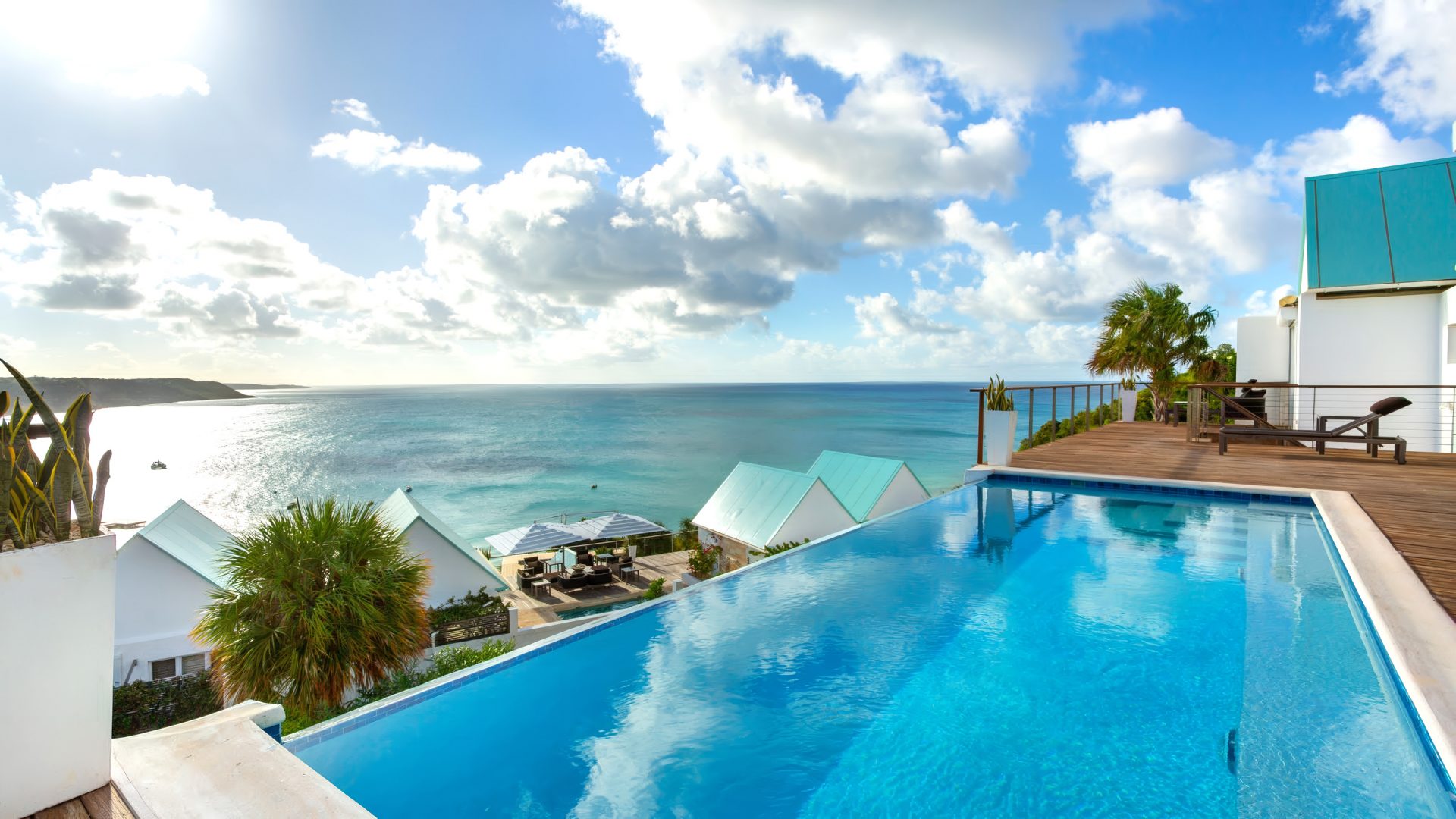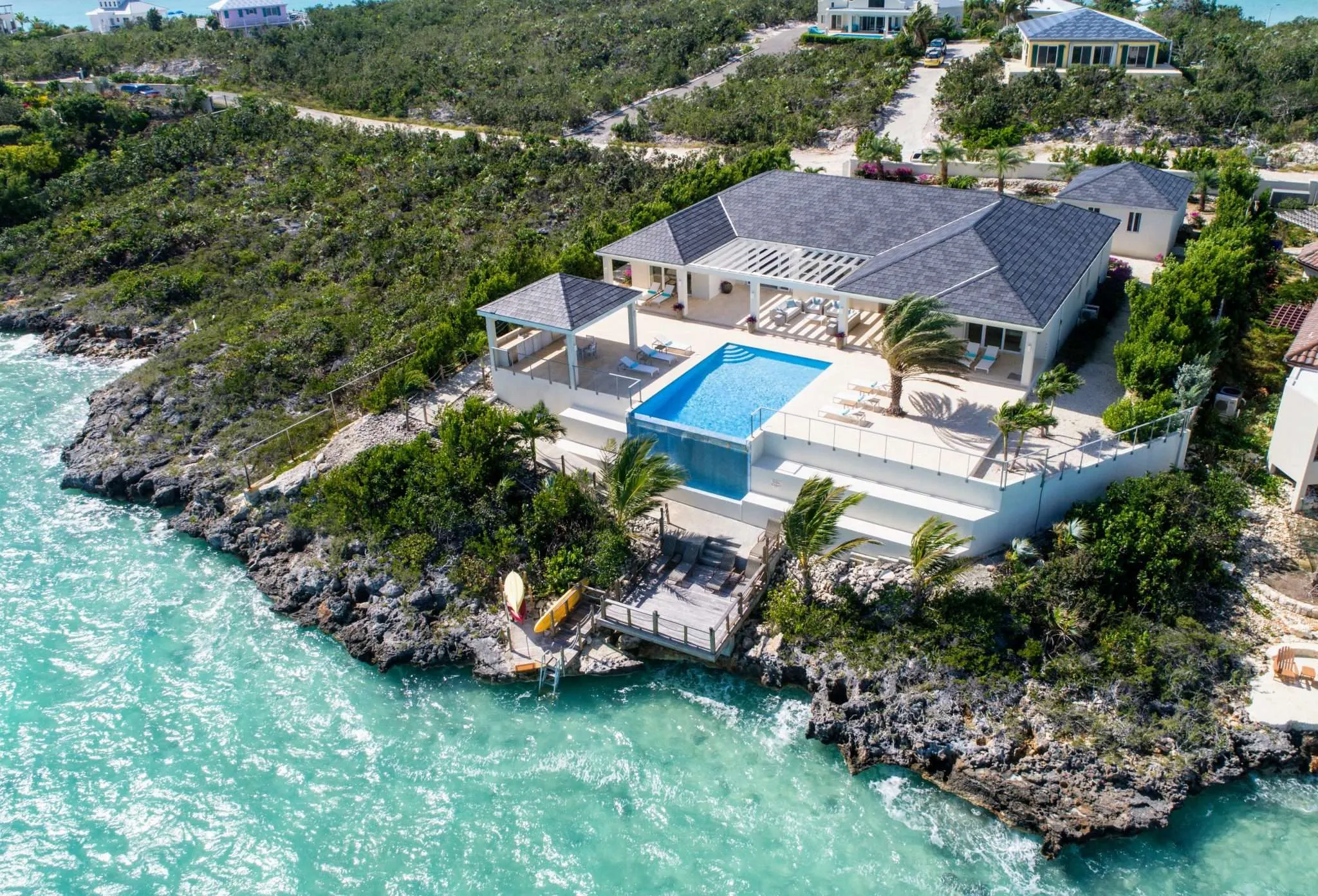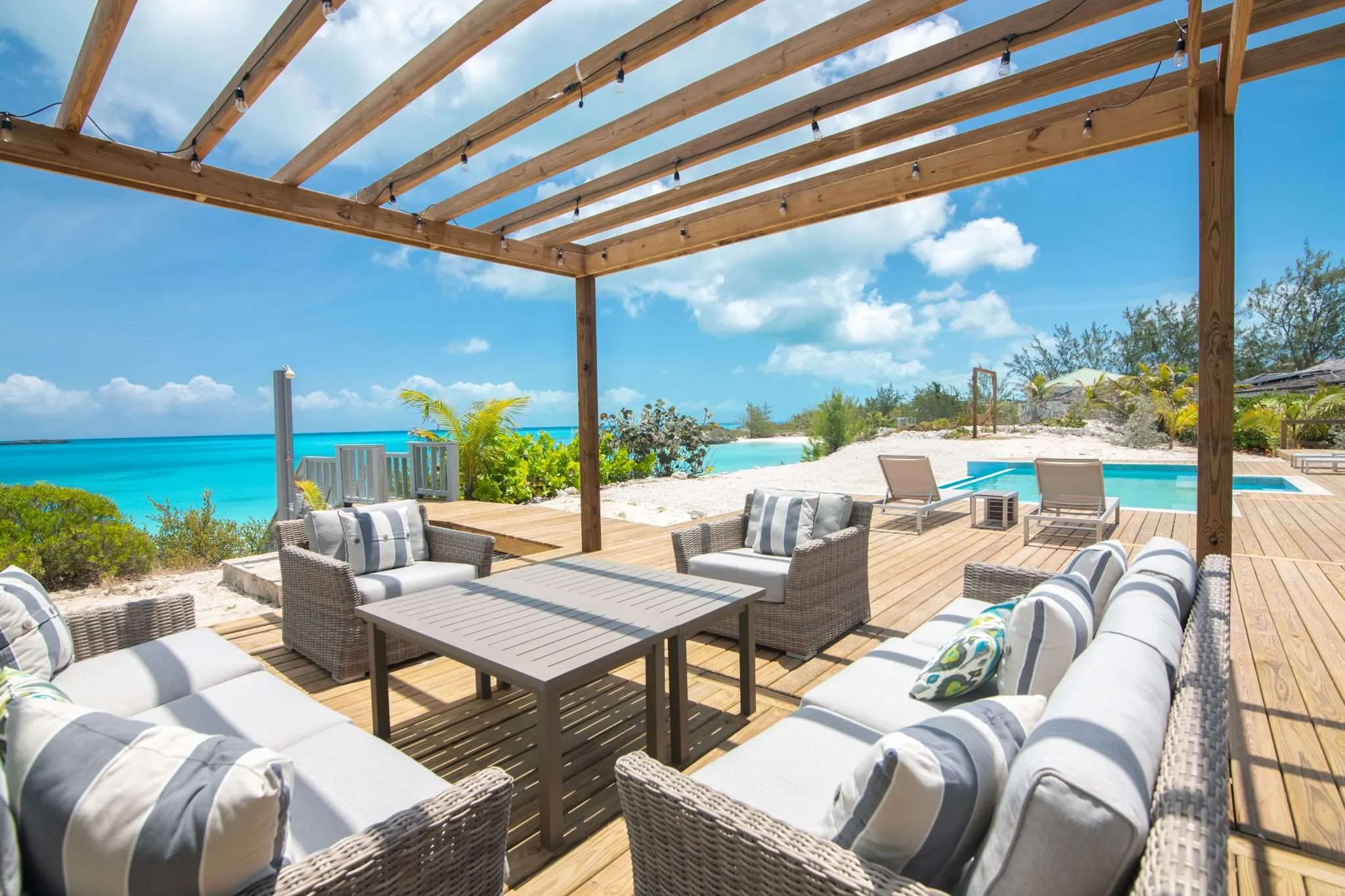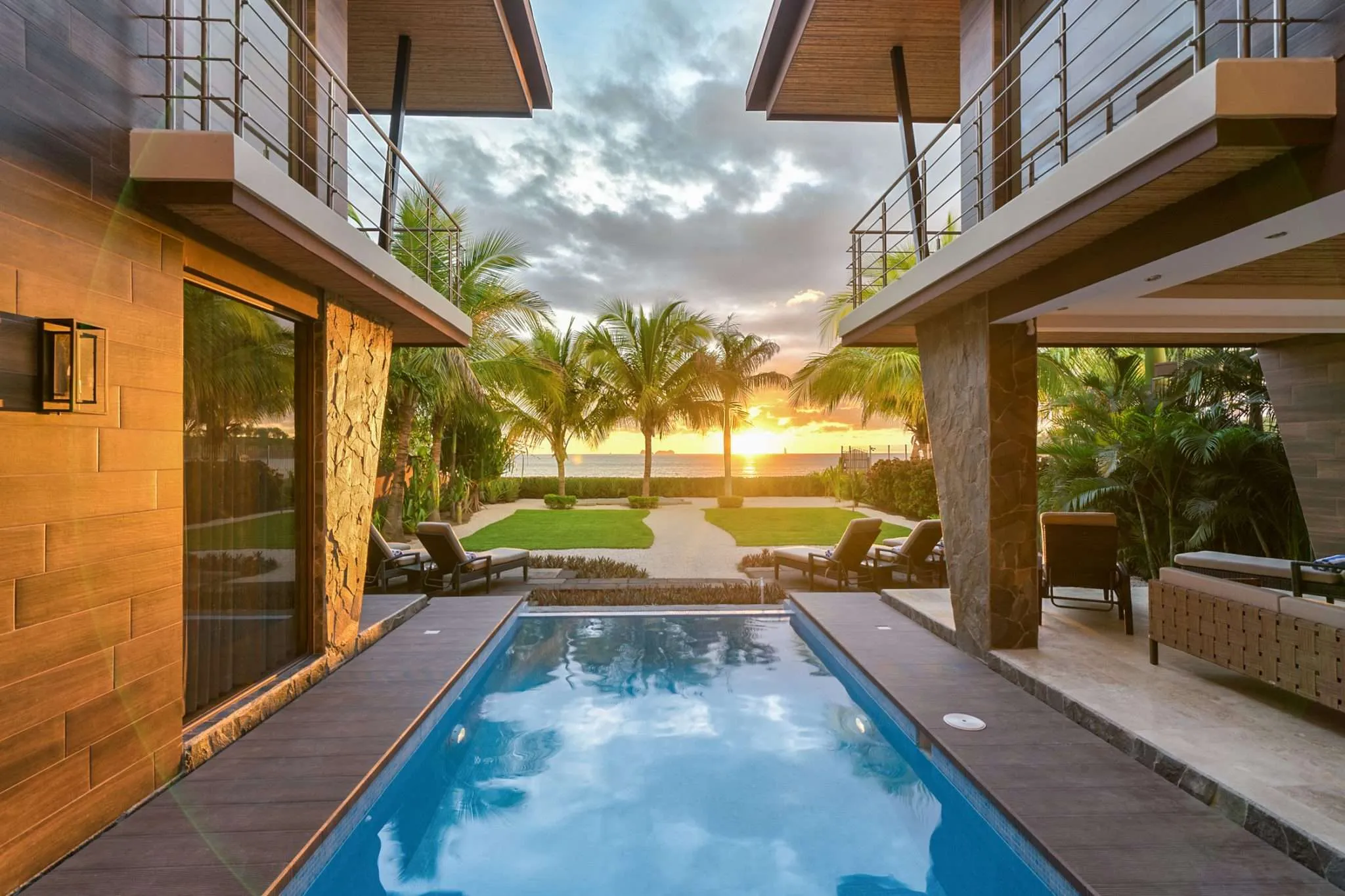As seen in the Authority Magazine.

Thank you so much for doing this with us! Before we dig in, our readers would like to get to know you a bit more. Can you tell us a bit about your “backstory”? What led you to this particular career path?
I’ve had an interest in architecture and design since early childhood. I admired architects such as Frank Lloyd Wright, who had several projects in my neighborhood including Wingspread and the SC Johnson administration building. For fun, I would read architecture books and sketch house and building designs. Investing in real estate came naturally. I liked the tangible nature of the investment and the opportunity to apply both business and creative skills.
I have an engineering degree from the University of Wisconsin — Madison and an MBA from Ross School of Business. I’ve lived in London, Paris, Nice, Sydney, and Singapore which has helped me develop a global perspective. My background is varied: an experienced investor; management executive; and senior executive consultant working across the automotive, technology, media, and entertainment industries.
For the past 20 years, I’ve been investing in residential real estate, ranging from new construction to remodels and distressed assets. After the 2008 financial crash, I began acquiring foreclosures in California and Nevada at deep discounts. Based on this successful experience, I decided to launch an investment fund.
While researching geographic markets, I noted that second homes in vacation destinations were taking longer to recover from the financial crises than primary residences and could be acquired at deep discounts. The right properties generated as much rental revenue in one week as many long-term rentals might generate in a month. These homes also presented an opportunity to capitalize on an emerging trend for shared use of luxury assets.
In parallel, Steve Dering and John Long had been discussing shared ownership of yachts which were greatly devalued during the recession. John, a McKinsey alum and a Wharton MBA, brought his expertise in launching new ventures. I suggested they consider shared ownership of vacation homes as yachts depreciate and have high operating costs while vacation homes appreciate and have income potential. We joined forces and created our first real estate investment fund. The Equity Villa Fund attracted accredited investors who receive an annual “dividend” through personal use of the homes in addition to investment gains through appreciation. Steve brought years of shared-use experience in the fractional resort industry and we hired a hospitality staff who had worked with Auberge and Ritz Carlton.
Can you tell our readers what it is about the work you’re doing that’s disruptive?
We’ve approached second homes as a professionally managed and diversified investment class. Timeshares, destination clubs, and, to some degree, fractional resorts offer the pre-purchase of vacations, with limited exit options and varying levels of residual value. Of course, you can own a second home yourself but you take on the part-time job dealing with maintenance, upkeep, and other chores and expenses. Also, most vacation home owners feel obligated to travel to one location and their average use is less than 30 days per year.
David Swensen, the former chief investment officer at Yale University, advocates diversifying an investment portfolio with real estate and paying low fees on investments. At Equity Residences, we married this philosophy with the hospitality aspect of the business.
There are destination clubs and similar business models out there for affluent individuals who want to vacation in luxury homes handpicked for their exclusive use. The annual membership expense for these clubs can be tens of thousands of dollars. For individuals who can afford it, these clubs present an enticing alternative to renting non-curated vacation homes. However, the all-in vacation cost can be equal to paying rack rate for equally luxurious and serviced rental homes.
By combining the club model and the asset investment model, we created an attractive investment vehicle for discerning travelers. We provide vacations at hand-selected residences in exciting locations while converting these family vacations into an investment rather than an expense. Our investors can reserve their family vacations as much as 14 months prior to arrival. After satisfying investor requests, we cover annual operating costs by renting our homes when they are not occupied by our investors.
As an example, a house in the Mauna Lani resort in Hawaii costs close to $100,000 a year to operate after insurance, HOA fees, taxes, utilities, maintenance, etc. The majority of these expenses are covered by the rental income, freeing our investors from that financial burden. Our investors do not pay nightly rental rates to vacation in Fund homes. As owners, they also avoid paying rental platform fees and short-term occupancy taxes imposed on renters by local ordinances.
Having rental income also allows the fund to pay dividends, as we do with the Equity Villa Fund. We leverage our investment expertise to benefit our investors by identifying homes with high capitalization rates and maximum appreciation potential. We own our homes outright, avoiding non-appreciating, long-term leases or the added risk and financial burden of significant debt. Mortgage payments and lease payments erode the upside and increase the risk for investors during economic downturns and upon portfolio liquidation.
Another fundamental of our business model is keeping investor fees low. High syndication and management fees reduce investment returns. This forces us to be creative and efficient. When marketing the fund, we use cost-effective tactics like search engine optimization and investor referrals.
Can you share a story about the funniest mistake you made when you were first starting? Can you tell us what lesson you learned from that?
When we were first starting, we spent months meticulously editing our marketing materials and refining our business model. We had long calls debating the wording of a particular sentence. However, the business didn’t take off until I booked a flight to Hawaii, put some homes under contract, and discussed the opportunity with whoever would listen. Subsequently, our investors helped us refine our marketing message and business model. The biggest lesson is: just get started.
We all need a little help along the journey. Who have been some of your mentors? Can you share a story about how they made an impact?
Steve Dering has been a mentor from the beginning and is on our board of directors. Steve pioneered the world’s first private residence club (luxury fractional real estate ownership) at Deer Valley Resort in Park City, Utah. He also structured and launched The Phillips Club in Manhattan, the world’s first urban residence club and the highest-grossing residence club in the world. Residence clubs created by Steve in the U.S. and internationally have generated more than $1 billion in sales. Previously, Steve was a member of Deer Valley Resort’s first executive team.
When we first started, I had no experience in the shared use of the luxury real estate. Steve had already implemented the model across numerous fractional resorts around the world. A fractional resort provides deeded ownership interest in a home, split amongst several households (most often eight), who use the home throughout the year. Fractional homes are typically more sustainable due to the shared-use component and allow for splitting of expenses across the owners. A key tenant is to ensure fair and equitable access. Steve’s experience helped us to get it right from the beginning.
In today’s parlance, being disruptive is usually a positive adjective. But is disrupting always good? When do we say the converse, that a system or structure has ‘withstood the test of time’? Can you articulate to our readers when disrupting an industry is positive, and when disrupting an industry is ‘not so positive’? Can you share some examples of what you mean?
Disruption can result in the displacement of workers or whole industries. Shared use of luxury vacation homes might result in fewer homes being built, creating less architecture, planning, and construction jobs. Fewer homes built might create less demand for furniture, appliances, and other home goods. Access to luxury homes may result in less demand for luxury hotel brands. Hotel associations may lobby to slow down the disruption to their industry. Owning a diversified portfolio of vacation homes may reduce churn, thereby reducing commissions for realtors and escrow companies. However, it might create new job opportunities for property managers, maintenance staff, and cleaning companies.
The positive aspect of this “disruption” is that our investors are turning family vacations from a pure expense into an investment and using less land and resources to do so.
Historically, innovations have disrupted labor markets and manufacturing supply chains. But humans adapt and, on balance, disruptive and innovative businesses improve our quality of life.
Can you share 3 of the best words of advice you’ve gotten along your journey? Please give a story or example for each.
- Learn from your investors (customers). This is how we refined our business model and market positioning. As a result of feedback from Equity Villa Fund accredited investors, our second fund, the Equity Platinum Fund, is acquiring more upscale residences. We consistently heard that we had the best mousetrap in terms of our business model, but they wanted a more luxurious portfolio. The Equity Platinum Fund is raising $50 million to acquire twenty luxury vacation homes ranging from $1.5 million to $4 million in value.
- Make sure you get the big things right. When you start a company, you’re wearing many hats and you can’t always do everything at the same time. So, prioritize and focus on the big things. For us, it was buying “right” and bringing on new investors.
- Never give up! If you believe in it, keep at it. You’ll inevitably encounter roadblocks along the way. This is your opportunity to learn and innovate your way to a solution. For example, we found a great investment opportunity but we needed to close quickly. We didn’t have sufficient funds on hand for a quick close so we turned to our existing investors. We successfully offered them a bridge financing opportunity that allowed us to buy the home while enhancing their equity position.
We are sure you aren’t done. How are you going to shake things up next?
We’re creating a sustainable eco-island in the Caribbean with shared use of both solar-powered luxury villas and solar-powered yachts. It builds on the shared-use concept by applying it to an off-the-grid island community. The luxury villas will be pre-engineered and assembled on site. All building materials and systems are sustainable and we will enhance the local ecosystem.
Do you have a book, podcast, or talk that’s had a deep impact on your thinking? Can you share a story with us? Can you explain why it was so resonant with you?
I like podcasts that help me look at the world from a new perspective. I’m not sure I have a specific example, but I would say Freakonomics reminds me that conventional wisdom is not always correct.
Can you please give us your favorite “Life Lesson Quote”? Can you share how that was relevant to you in your life?
Just get started and have the confidence that you can figure it out as you go. For many things in life, you don’t have all the answers at the beginning. You may have a goal or vision for what you want to achieve and the pursuit of it is a journey full of education, roadblocks, and innovation.
You are a person of great influence. If you could inspire a movement that would bring the most amount of good to the most amount of people, what would that be? You never know what your idea can trigger. 🙂
I would inspire a movement in sustainable real estate development that makes our planet healthier and more vibrant, reducing pollution and waste, and satisfying more people with less construction.
How can our readers follow you online?
Our website has all the information you need to know about us.
We have a collection of videos on YouTube that summarizes our business model.
I am also on Linkedin.
This was very inspiring. Thank you so much for joining us!



